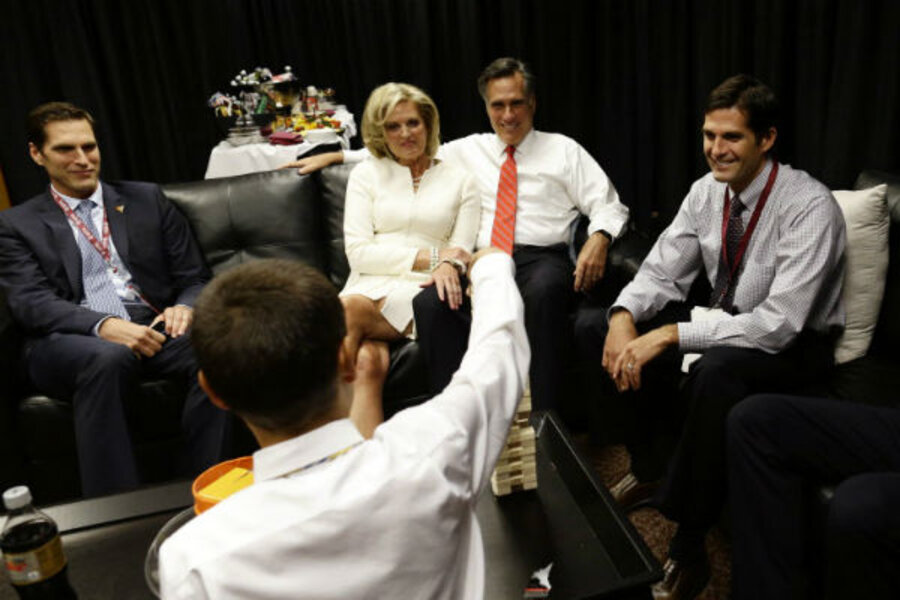Matt was reluctant to have his father run for president a second time. After the 2008 Republican primary, the family knew what to expect. And although running for president might not be the best thing for the family, Matt told talk-show host Conan O’Brien that it is the best thing for the country.
Matt said one important role the sons play in the campaign is to keep Romney loose before debates. They show him funny YouTube clips and play games.
“Everyone in the country gives him advice,” Matt told The New York Times. “We’d like to give him advice, too, but we just have to bite our tongue.”
During the 2008 campaign, Matt pulled a prank on his father when he was campaigning in Michigan. He called and pretended to be then California Gov. Arnold Schwarzenegger (R), whom Mitt had asked for an endorsement. Mitt ended up hanging up after a few ridiculous questions from a soundboard with quotations from Arnold's movies.
Matt is senior vice president of capital markets of Excel Trust, a real-estate investment trust formed in 2009. He lives in San Diego with his wife, Laurie, and their five children. He studied political science at Brigham Young University before earning his MBA from Harvard Business School.








